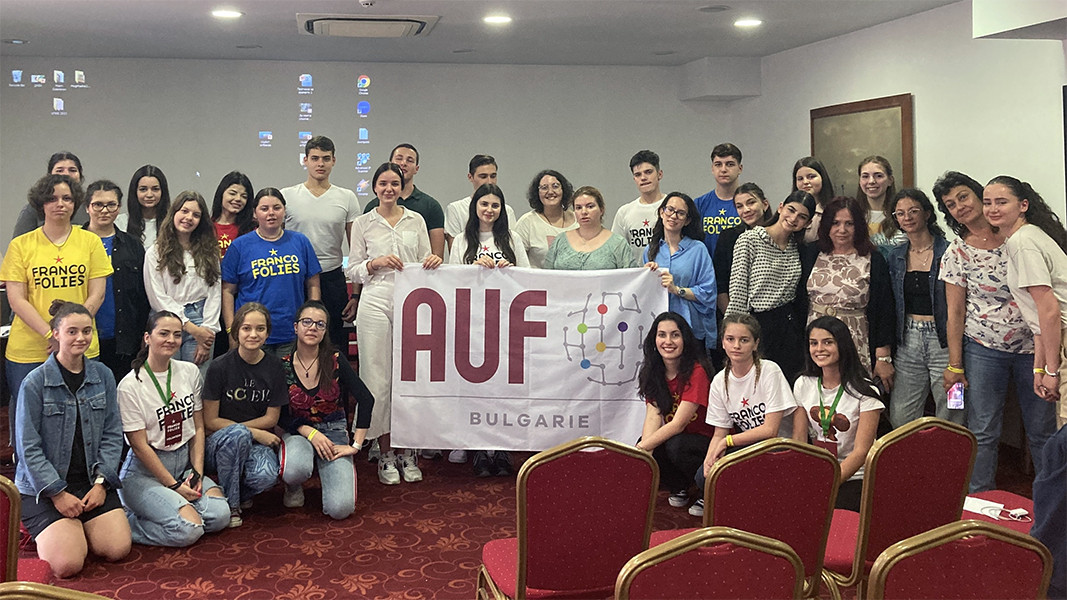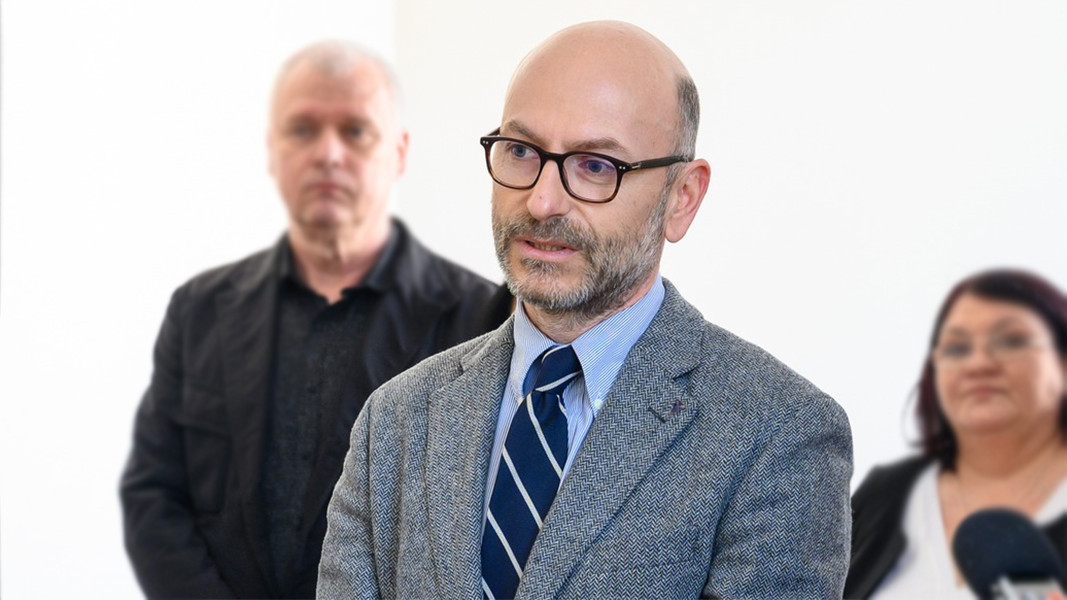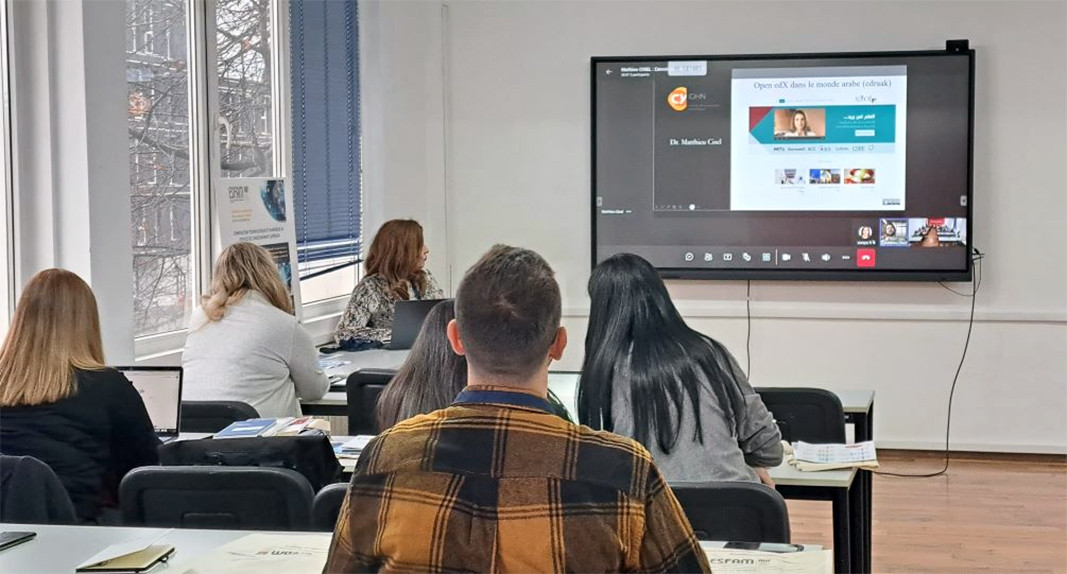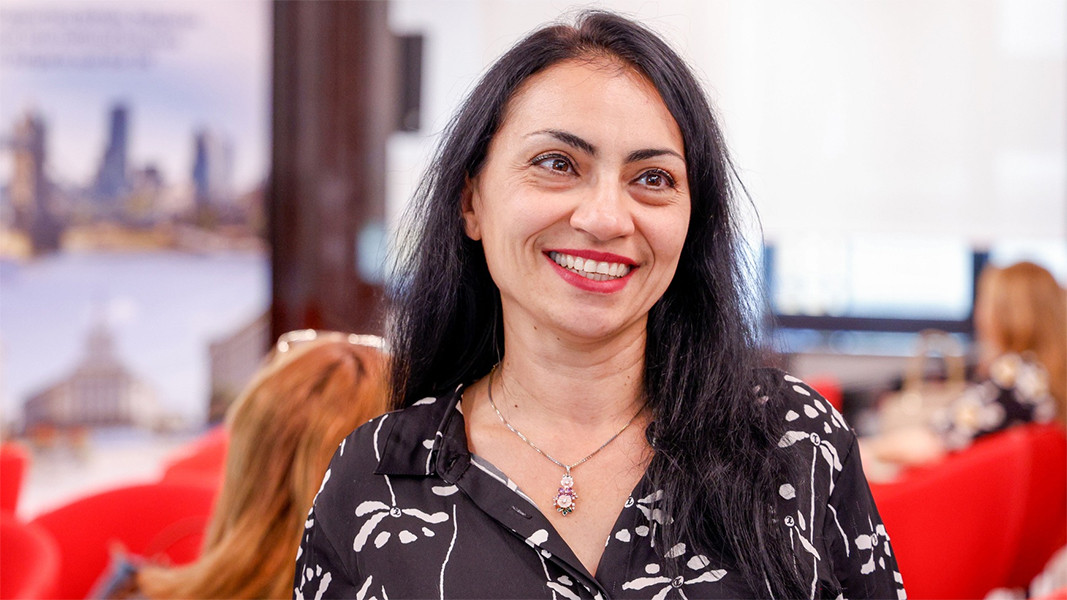With a desire to open up to the world after the long years of isolation in the former socialist camp, Bulgaria and Romania joined the International Organization of La Francophonie in 1994.
One of the main values of the Francophone community is education and more particularly- academic education. In this connection, the Francophone University Agency (AUF) was born. It was established more than 60 years ago and is currently the largest university association in the world, with over 1,000 members in nearly 120 countries. In Bulgaria, there are 11 universities in the AUF network as the Bulgarian Academy of Sciences /BAS/ is among the members.
In this way, institutional Francophonie entered Bulgaria in the beginning of the transition to democracy and this year marks the 20th anniversary of the establishment of the National Bureau of the Francophone University Agency in Bulgaria. Its seat today is in a specialised center in the Sofia University "St. Kliment Ohridski”.

"Back in the early 90s of the past century, even before the entry of AUF, the first university francophone programs were opened in Bulgaria. The oldest one dates back to 1992 – biochemical engineering at the then Chemical-Technological and Metallurgical University," Petar Tuparev, head of the National Bureau of the Francophone University Agency says in an interview with Radio Bulgaria :

"Thanks to it, highly qualified engineers are being trained to this day. The training is 100% in French and gives them diplomas that are accredited by the French commission for engineering diplomas. These diplomas are fully equivalent to the documents that students receive in France. This is the first example of opportunities to study in Bulgarian universities in French language. Immediately after it, the Technical University in Sofia created an engineering program in informatics and electrical engineering, which also has French accreditation. This document allows the relevant graduate to work anywhere in Europe and the world. Foreign students are also accepted in these programs, usually from the countries of Marroco, Tunisia , Algeria, also from Sub-Saharan Africa. Our goal is for high school students to continue to develop their French and develop as francophones in Bulgaria. And by promoting the university programs, we want to show them that there is an opportunity for the French language to continue to be useful to them after they leave school."
The programs in French in Bulgaria country do not cover all disciplines and areas of knowledge. They are mainly in the exact sciences, in the humanitarian sciences and some of them are related to economics and business management /at SU/, as well as political science and international relations /at NBU/. There are also purely philological programs and applied linguistics, which are studied at the Sofia University, Veliko Tarnovo University and the New Bulgarian University.

The promotion of the Francophone community in this country also follows the needs of business. "French companies invest a lot in education and the connection between education and industry. With their support, there are specialized classes in secondary schools, as they also cooperate with universities," says Vessela Todorova-Mosettig, head of the French-Bulgarian Chamber of Commerce and Industry. 300 companies are members of the organization, half of which are French and the other half are Bulgarian companies with an interest in developing their relations with France.

"The mission of the Bulgarian-French Chamber is to promote Bulgaria as an investment destination; to inform French companies about the opportunities they can find here. We work a lot on the presentation of Bulgaria in France and our goal is to increase the French presence. Accordingly, there are French companies that make inquiries about the Bulgarian market or want to work here. They are looking for personnel who speak French, who carry the French business culture.
More than 60% of French investments in this country are in the sphere of industry - aircraft construction, motor oils, production of circuit breakers. These are highly technological sectors and science is strongly represented in them. There are companies in the agrotech sector and those that carry out genetic research in the country - it's all thanks to the availability of qualified Bulgarian personnel."
Among the companies that come to Bulgaria, there are global leaders whose production finds market everywhere. "They are looking for middle and senior management here, among the Bulgarians. This is the philosophy of the French - that the local people know best how to manage the staff and the activities on native soil," Vessela Todorova-Mosettig says. According to her, "Bulgaria has a unique system of 18 language high schools scattered throughout the country, which are an exceptional first step towards the language."
Explore French-language study programs at Bulgarian universities:
Photos: FB/auf.bulgarie, FB/ccifrancebulgarie
Publication in English: Al. Markov
The Varna Regional Library "Pencho Slaveykov" has acquired a humanoid robot. It was unveiled by the library's director, Radka Kalcheva, during the celebration of the 20th anniversary of the library's American Corner, in the presence of Eric Brasel, the..
1000 participants will take part in the first Burgas Half Marathon, which will take place this Sunday, 24 November. The event will bring together amateurs and professionals of different ages who will compete in three distances - 1 km, 10.5 km and 21 km...
Two graduates of the Bulgarian School "Saints Cyril and Methodius" in Jordan presented their achievements at an event at their school "Hadi al Muhammadi" in Amman. The photo, published on the Bulgarian school's Facebook page , shows third graders..
In the week of St. Andrew’s Day (also known as Bears’ Day or Mechkinden), WWF is drawing attention to six orphaned bear cubs who have been given a..
According to the Annual Report on the Health Status of Bulgarian Citizens for 2023, t he main cause of death in Bulgaria is diseases of the..

+359 2 9336 661
